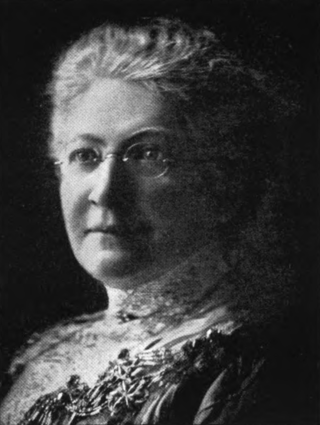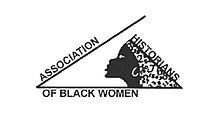The Association for the Study of African American Life and History (ASALH) is a learned society dedicated to the study and appreciation of African-American History. The association was founded in Chicago on September 9, 1915, during the National Half Century Exposition and Lincoln Jubilee, as the Association for the Study of Negro Life and History (ASNLH) by Carter G. Woodson, William B. Hartgrove, George Cleveland Hall, Alexander L. Jackson, and James E. Stamps, and incorporated in Washington, D.C., on October 2, 1915. The association is based in Washington, D.C. In 1973, ASNLH was renamed the Association for the Study of Afro-American Life and History.

The Alpha Suffrage Club was the first and most important black female suffrage club in Chicago and one of the most important in Illinois. It was founded on January 30, 1913, by Ida B. Wells with the help of her white colleagues Belle Squire and Virginia Brooks. The Club aimed to give a voice to African American women who had been excluded from national suffrage organizations such as the National American Women Suffrage Association (NAWSA). Its stated purpose was to inform black women of their civic responsibility and to organize them to help elect candidates who would best serve the interests of African Americans in Chicago.

The American Woman Suffrage Association (AWSA) was a single-issue national organization formed in 1869 to work for women's suffrage in the United States. The AWSA lobbied state governments to enact laws granting or expanding women's right to vote in the United States. Lucy Stone, its most prominent leader, began publishing a newspaper in 1870 called the Woman's Journal. It was designed as the voice of the AWSA, and it eventually became a voice of the women's movement as a whole.
The College Art Association of America (CAA) is the principal organization in the United States for professionals in the visual arts, from students to art historians to emeritus faculty. Founded in 1911, it "promotes these arts and their understanding through advocacy, intellectual engagement, and a commitment to the diversity of practices and practitioners." CAA currently has individual members across the United States and internationally; and institutional members, such as libraries, academic departments, and museums located in the United States. The organization's programs, standards and guidelines, advocacy, intellectual engagement, and commitment to the diversity of practices and practitioners, align with its broad and diverse membership.

Sallie Wyatt Stewart was an American educator and a social services organizer for the black community in Evansville, Indiana, who is best known for her leadership in local, state, and national black women’s clubs. Stewart served as president of the Indiana Federation of Colored Women from 1921 to 1928 and succeeded Mary McLeod Bethune as president of the National Association of Colored Women from 1928 to 1933. During her term as the IFCW's president, Stewart launched "The Hoosier Woman", a monthly newsletter that served as the organization's official publication. Among her accomplishments as the NACW's president was the founding in 1930 of the National Association of Colored Girls. In addition, Stewart was a delegate in 1930 to the International Council of Women in Vienna, Austria, and fourth vice president of the National Council of Women of the United States. She also served a trustee and secretary of the Frederick Douglass Memorial and Historical Association, a member of the executive committee of the National Negro Business League, a member of the executive committee of the National Colored Merchants Association, and a teacher in the Evansville public schools for more than fifty years.

The National Association of Women in Construction (NAWIC) is a professional association for women in the field of construction. The purpose of the association is to support women in construction through networking, professional education, and mentorship. Its professional staff is based in Fort Worth, Texas.
African-American women began to agitate for political rights in the 1830s, creating the Boston Female Anti-Slavery Society, Philadelphia Female Anti-Slavery Society, and New York Female Anti-Slavery Society. These interracial groups were radical expressions of women's political ideals, and they led directly to voting rights activism before and after the Civil War. Throughout the 19th century, African-American women such as Harriet Forten Purvis, Mary Ann Shadd Cary, and Frances Ellen Watkins Harper worked on two fronts simultaneously: reminding African-American men and white women that Black women needed legal rights, especially the right to vote.
Jacqueline Anne Rouse (1950-2020) was an American scholar of African American women’s history. She is most widely known for her work on Southern black women and their activism from the turn of the twentieth century to the Civil Rights Movement.
The Atlanta Neighborhood Union was an African-American, women-led neighborhood organization in Atlanta, Georgia, started in 1908 by Lugenia Burns Hope, and chartered in 1911. The Union, "a prototype for self-help and social service organizations," was one of the most important organizations for Atlanta's social services, and worked in part by networking with the city's progressive whites. One of the organizations influenced by it was the Women's Political Council, of Montgomery, Alabama. It was dissolved in the 1970s.

Rosalyn Terborg-Penn was an American professor of history and author. Terborg-Penn specialized in African-American history and black women's history. Her book African American Women in the Struggle for the Vote, 1850–1920 was a ground-breaking work that recovered the histories of black women in the women's suffrage movement in the United States. She was a faculty member of Morgan State University.

Mary Ellen Peters Black (1851–1919) was a prominent organizer and activist related to women's issues in Georgia. Black also promoted agricultural reform and increasing educational opportunities, especially for women. She was an active member of the Atlanta Woman's Club as well as the Woman's Auxiliary of the Episcopal Diocese of Georgia.

Elizabeth Piper Ensley, was an educator and an African-American suffragist. Born in Massachusetts, Ensley was a teacher on the eastern coast of the country. She moved to Colorado where she achieved prominence as a leader in the Colorado suffrage movement. She was also a journalist, activist, and a leader and founder of local women's clubs.

The Northeastern Federation of Colored Women's Clubs (NFCWC) is an umbrella organization representing black women's clubs in the northeastern United States. The organization was affiliated with the National Association of Colored Women's Clubs (NACWC). It was the first umbrella organization for black women's clubs in the United States, predating the NACWC by a month. The motto of the club is "For God and Humanity".

Monroe Alpheus Majors was an American physician, writer and civil rights activist in Texas and Los Angeles. He was one of the first black physicians in the American southwest and established a medical association for black physicians who were not allowed entry into the American Medical Association. He wrote a noted book of biographies of African-American women, Noted Negro Women: Their Triumphs and Activities, published in 1893, and wrote for numerous African-American newspapers, notably the Indianapolis Freeman, of which he was an associate editor in 1898 and 1899, and the Chicago Conservator, which he edited from 1908 to 1910. He was the father of composer Margaret Bonds.
Augusta Lynn Bolles is an American anthropologist, professor Emerita of women's studies and affiliate faculty in anthropology, African American studies, American studies, comparative literature and the Latin American studies center at the University of Maryland, and co-chair of The Cottagers' African American Cultural Festival.

Sadie L. Adams was an African-American teacher, suffragist, and clubwoman. She was one of the first women to serve on an election board in Chicago and one of the founders of the Douglas League of Women Voters. In 1916, she served as a delegate from Chicago's first black suffrage organization, the Alpha Suffrage Club, to the National Equal Rights League conference. She was elected president of the Chicago and Northern District Association of Colored Women's Clubs in 1921, serving into 1934. She was also involved in various charity clubs and organizations that helped to engage women in war work during World War I, provide resources for underserved youth, and increase suffrage for Black women.
Bertha Grant Higgins was an American suffragist, civil rights activist and clubwoman. She was involved in supporting women's suffrage in Rhode Island. She strongly supported the Dyer Anti-Lynching bill and worked towards equal rights for African Americans.

Edith L. Williams was a United States Virgin Islands educator, women's rights activist, and suffragist. Williams was the first woman who attempted to vote in the Virgin Islands and when she was denied the right to register, she petitioned the court along with Eulalie Stevens and Anna M. Vessup to review their qualifications. They won their case and subsequently women throughout the Virgin Islands who were literate and property owners were allowed to vote. A bust of Williams was installed in the Franklin Delano Roosevelt Veterans Memorial Park in Charlotte Amalie, and the James Madison Elementary School was renamed as the Edith L. Williams School in 1981 in her honor.

Ida E. Jones is an American historian and author who is the University Archivist at Morgan State University, the first archivist in the university's history.
The Coordinating Council for Women in History is a national professional organization for women historians in the United States. It was founded in 1969 as the Coordinating Committee on Women in the Historical Profession to promote recruitment and scholarship among women historians. It is an affiliate organization of the American Historical Association.












